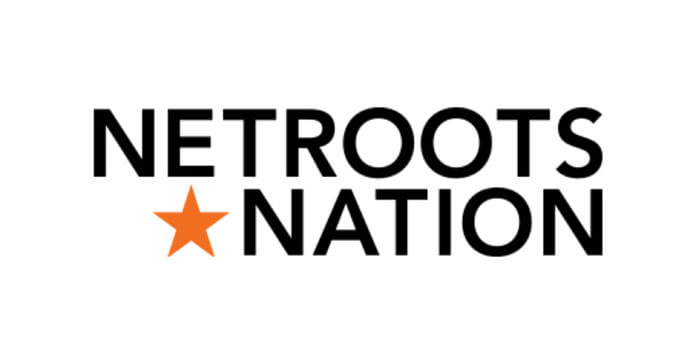This Friday morning at Netroots Nation, the conversation at the Disinformation in the Vote panel focused on how such efforts disproportionately target non-English-speaking communities.
Panelists included VotoLatino’s Research Manager Liz Lebron, The New Georgia Project’s Research Director Rananda Robinson, APIA Vote Communications Associate Kyle Van Fleet, and the Free Press’ Campaign Manager Rose Lang-Maso.
Disinformation in the vote directly impacts communities of color by using racialized language. Liz Lebron says that while voter fraud disinformation hurts the entire electoral process, narratives blaming “illegal voters” specifically impacts the Latinx community.
This portrays the two major types of ongoing disinformation; narratives targeting disenfranchised communities from “outside” sources, and narratives designed to be spread within these communities. One example of the latter is Voto Latino’s discovery of targeted messaging against certain political candidates within the large populations of Latinix voters in Florida, repeatedly declaring them socialists or communists.
Ranada Robinson at The New Georgia Project also found that large amounts of this disinformation focuses on convincing voters their vote does not matter — not just about convincing people to change their vote, but about convincing people not to vote at all: “It not only steers people the wrong way, but it also convinces people to stay at home.”
Robinson highlighted the importance of being sensitive when handling voters who fall victim to these lies, rather than making people feel stupid. Disinformation is doing what it is designed to do, convincing and upsetting unsuspecting victims, and no one wants to feel that they have been deceived and ashamed.
This kind of disinformation is also often posted and spread in languages besides English. Rose Lang-Maso noted that English content is regulated much more than Spanish content. At Free Press, Lang-Maso and her team worked to take down one extremely violent and offensive piece of English disinformation from Facebook in less than a week. When that same content was discovered in Spanish, Facebook took eleven months to remove the material. This is just one example of the disproportionate effects disinformation is making in non-English speaking communities as well as the potential global impact these posts have to power to make.
Kyle Van-Fleet emphasized the real life violence experienced by the Asian community as a result of disinformation. Combating these deadly narratives can be incredibly difficult for APIA due to the broad audience the Asian American community includes. Effective work in this area means understanding many different cultures and languages, including engagement in different platforms such as WeChat, that are frequently used by the APIA community. Van-Fleet said there is a need for more manpower, infrastructure, and funding in this area to protect the APIA community from disinformation-fueled violence.
Finally, each panelist described the difficulty their organizations face as targets of disinformation themselves. In 2020, The New Georgia Project was the target of voter fraud disinformation at a press conference for the state of Georgia’s Governor and Secretary of State. Instances such as this force organizations to redirect their efforts toward repairing their reputation in the community. Robinson encouraged victims of disinformation to use the media attention to deny the claims and quickly pivot to explaining your cause and the community being served.
In conclusion, Lebron argues that the most important role such organizations as VotoLatino can play is to establish themselves as credible voices in their communities of focus and supporting year-round civic engagement in the face of disinformation designed to silence voters.

